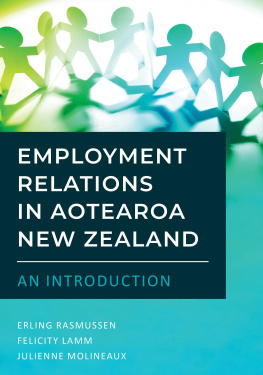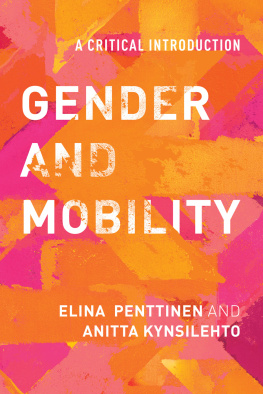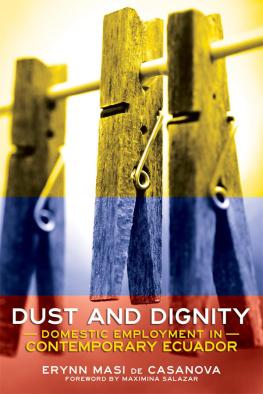
Sex Work offers a rich and compelling account of how the macro-conditions of global labour markets and gendered notions of morality and intimacy have shaped womens migration projects and the micro-practices of sex work and its regulation. It exemplifies the best of sociological and criminological traditions in the study of crime and deviance in Australia in a global context.
Maggy Lee, Associate Professor, Department of Sociology, The University of Hong Kong.
Sex Work
Sex work has always attracted policy, public and prurient interest. Currently, legal frameworks in developed countries range from prohibition, through partial legalization to active regulation. Globalization has increased womens mobility between developing and developed countries at the same time as womens employment opportunities in the developed world are shifting. Family and intimate relationships are being transformed by changing demographics, shifting social mores and new intersections between intimate lives and global markets. Sex work is located at the nexus of new intimacies, shifting employment patterns and changing global mobilities.
This volume examines the working lives of contemporary sex workers, including their practices, their labour market conditions and their engagement with domestic and international regulatory frameworks. It locates the voices and experiences of workers in Melbourne, Australia, at the centre of the sexual services industry as they reflect on brothels and independent escort work, on working conditions and managers, and on the relationships they form with clients. It offers a new account of sex work where womens labour and mobility is understood as central in local and global imperatives to offer sexual services. It examines how these new imperatives intersect with, challenge and exceed existing regulatory frameworks for sex work.
Sex Work: Labour, mobility and sexual services draws together the everyday practices of sex workers and the broader global markets in which workers negotiate employment. In bringing together these two important intersecting areas, it offers a grounded and innovative account of sex work which will be of interest to academics and policy makers concerned with sex work, gender studies and the sociology of labour.
JaneMaree Maher is an Associate Professor and currently Director in the Centre for Womens Studies and Gender Research at Monash University, Australia. She is co-editor with Wendy Chavkin of The Globalization of Motherhood (Routledge, 2010) and also co-editor with Maggie Kirkman and Kay Torney Souter of The Fertile Imagination: Narratives of birth, fertility, and loss (Meridian, 2002).
Sharon Pickering is Professor of Criminology at Monash University, Australia. She researches irregular border crossing and has written in the areas of refugees and trafficking with a focus on gender and human rights. She currently leads a series of ARC projects focusing on the intersections of security and migration and is Editor of the Australian and New Zealand Journal of Criminology.
Alison Gerard is Senior Lecturer in Justice Studies at Charles Sturt University, Australia. She is a lawyer with ten years experience in criminal, human rights and refugee law, both in Australia and Southeast Asia. Her doctoral research examined the impact of the securitization of migration on refugee women seeking entry to the European Union. She recently co-authored an article on this research that has been published by the British Journal of Criminology.
Routledge Studies in Crime and Society
| 1. | Sex Work
Labour, mobility and sexual services
JaneMaree Maher, Sharon Pickering and Alison Gerard |
First published 2013
by Routledge
2 Park Square, Milton Park, Abingdon, Oxon, OX14 4RN
Simultaneously published in the USA and Canada
by Routledge
711 Third Avenue, New York, NY 10017
Routledge is an imprint of the Taylor & Francis Group, an informa business
2013 JaneMaree Maher, Sharon Pickering and Alison Gerard; individual chapters, the contributors
All rights reserved. No part of this book may be reprinted or reproduced or utilized in any form or by any electronic, mechanical, or other means, now known or hereafter invented, including photocopying and recording, or in any information storage or retrieval system, without permission in writing from the publishers.
Trademark notice: Product or corporate names may be trademarks or registered trademarks, and are used only for identification and explanation without intent to infringe.
British Library Cataloguing in Publication Data
A catalogue record for this book is available from the British Library
Library of Congress Cataloging-in-Publication Data
Pickering, Sharon, 1972
Sex work : labour, mobility and sexual services / Sharon Pickering, JaneMaree Maher & Alison Gerard. 1st ed.
p. cm. (Routledge studies in crime and society)
Includes bibliographical references.
1. Prostitution. I. Maher, JaneMaree. II. Gerard, Alison. III. Title.
HQ111.P563 2012
306.74dc23
2012008992
ISBN: 978-0-415-50653-3 (hbk)
ISBN: 978-0-415-63066-5 (pbk)
ISBN: 978-0-203-10120-9 (ebk)
Typeset in Times New Roman
by Taylor & Francis Books
Acknowledgements
Our heartfelt thanks to the women workers who talked with us during the course of our research. Their willingness to talk openly about their labours as sex workers taught us an enormous amount; it is our hope that we have done justice to their generosity. We thank the support workers and other contacts who helped us understand the Victorian working environment.
This research was funded by the Department of Justice, Victoria, Australia, and we thank the Department for the opportunity and for the chance to further disseminate the work we conducted.
Parts of Chapter 2 were previously published as JaneMaree Maher, Sharon Pickering and Alison Gerard (forthcoming) Privileging work not sex: Flexibility and employment in the sexual services industry, Sociological Review . Our thanks for permission to republish.
Parts of Chapter 5 were previously published as Penny Crofts, JaneMaree Maher, Sharon Pickering and Jason Prior (2012) Ambivalent regulation: The sexual services industries in NSW and Victoria sex work as work, or as special category?, Current Issues in Criminal Justice , vol. 23. Our thanks for permission to republish and to Penny and Jason for assisting us in our thinking about regulation and ambivalence.
Conor Kiernan provided valuable research assistance and Maie Noweir and Julia Farrell provided editing assistance in the final stages. Our sincere thanks to all.
Abbreviations
| AFP | Australian Federal Police |
| MSHC | Melbourne Sexual Health Clinic |
| RhED | Researching Health and Education in the Sex Industry: A worker support agency |
| STIs | Sexually transmitted infections |
1
Introduction
The new intimacies and mobilities of sex work: who does it, where and why?
Mobility is the central organizing theme of this volume about womens labour in the sexual services industry. Our central focus is sex worker mobility within the industry, particularly across the borders of legal and illegal sex work, between regulated spaces and unregulated spaces, across state and national borders, and in and out of the sex industry. Importantly, in this volume, we recognize our mobility across the borders of political and feminist thinking. One of the key questions always posed in sex work scholarship is where the speaker falls or locates herself along the agency/servitude continuum that defines discussions of sex work. Despite recognition that polarized accounts of womens power or powerlessness in the sex industry do not account for the complexities of womens sex work (see OConnell-Davidson 2006, Wolkowitz 2006, Weitzer 2009a for persuasive critiques), this contest between pro- and anti-sex work voices often directs attention away from understanding sex work as work. It directs attention away from a clear and targeted analysis of how contemporary employment and migration patterns shape womens sex work. In Sex Work: Labour, mobility and sexual services , our efforts are directed at understanding womens decisions to undertake sex work, and how their interactions with existing state and national regulatory systems, and their mobility across national borders shape their work experiences.







